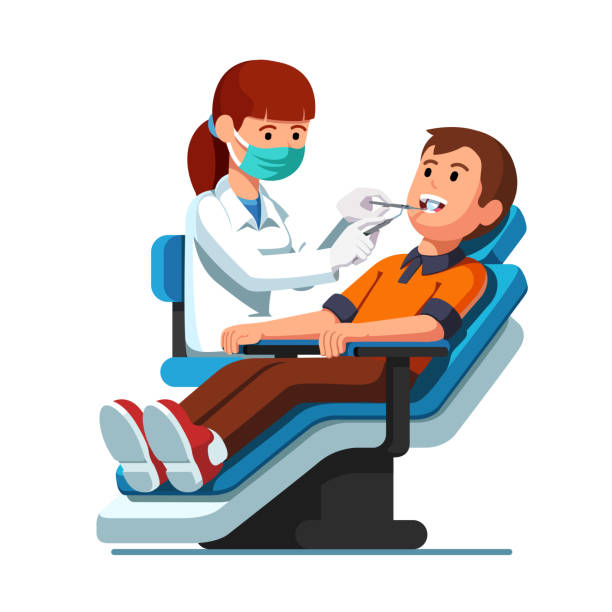Common Inquiries Concerning Oral Veneers Answered
Oral veneers have actually come to be an increasingly desired alternative for those seeking to improve their smiles, yet several individuals continue to be unsure about numerous aspects of their usage. Trick inquiries frequently develop concerning the application procedure, durability, and prospective threats connected with these cosmetic improvements. In addition, the difference between porcelain and composite veneers can significantly affect one's selection. As we discover these common questions, it becomes vital to think about not just the benefits however also the implications of selecting dental veneers in search of a more confident appearance. What factors should one evaluate prior to making such a decision?
What Are Dental Veneers?
Dental veneers are slim, customized coverings crafted from porcelain or composite resin that are developed to cover the front surface area of teeth. These dental prosthetics offer both useful and visual functions, giving a remedy for numerous dental flaws, consisting of discoloration, chips, gaps, and misalignment. By adhering to the teeth, veneers can significantly boost the total appearance of a smile, creating a much more consistent and attractive look.
Porcelain veneers are particularly favored for their natural translucency and tarnish resistance, making them a perfect option for individuals seeking resilient outcomes. On the other hand, composite material veneers are normally less costly and can be used in a single browse through, however they might not supply the very same sturdiness as porcelain options.
The decision to go with oral veneers typically stems from a wish for aesthetic enhancement, however clients should also consider factors such as the durability of the product, upkeep needs, and the possible requirement for tooth decrease (Low Cost Veneers). Inevitably, oral veneers stand for a flexible and reliable service for achieving a glowing smile, providing to private cosmetic needs while advertising self-confidence and self-worth
Exactly How Are Veneers Applied?
The application process for veneers requires cautious planning and precision to make certain optimum outcomes. The procedure typically starts with a detailed appointment, where the dental expert evaluates the person's oral wellness, reviews preferred results, and determines the proper kind of veneers, whether porcelain or composite material.
When the treatment plan is developed, the dental professional prepares the teeth by getting rid of a slim layer of enamel, usually about 0.5 mm to 1 mm, to accommodate the veneer. This action is essential as it makes certain a proper fit and protects against the veneers from appearing cumbersome - Low Cost Veneers. After preparation, perceptions of the teeth are taken to produce custom veneers that match the patient's distinct oral structure and visual preferences
While the long-term veneers are being produced in an oral laboratory, momentary veneers may be placed to secure the ready teeth. As soon as the long-term veneers are prepared, the dental practitioner will carefully bond them to the teeth using a solid dental adhesive.
What Are the Perks?

Furthermore, veneers are recognized for their resilience and resistance to discoloring contrasted to all-natural teeth. Made from high-quality materials such as porcelain or composite material, they can keep their look for many years with correct treatment. This longevity makes them a useful financial investment in one's oral look.
Along with aesthetic improvements, veneers can likewise add to enhanced dental wellness. By covering harmed or damaged teeth, they can provide additional support and security, aiding to avoid more degeneration or damage. This protective aspect can lower the requirement for a lot more considerable oral treatments in the future.

The Length Of Time Do They Last?
With proper treatment and upkeep, dental veneers can last anywhere from 10 to 15 years, making them a lasting remedy for enhancing one's smile. The long life of veneers greatly depends on the material utilized, the top quality of the initial positioning, and the individual's adherence to dental health practices.
Porcelain veneers are known for their toughness and resistance to discoloration, usually lasting closer to the 15-year mark when looked after suitably. Composite veneers, while much more budget friendly, may require substitute earlier, often within 5 to 10 years because of their vulnerability to use and staining.

Furthermore, using a mouthguard during sporting activities or nighttime can give extra security. Inevitably, like it while veneers provide a considerable visual enhancement, their long life is significantly influenced by the dedication to correct dental care and routine assessments with a dental specialist.
Exist Any Risks?
Thinking about the transformative impacts of dental veneers, it is very important to acknowledge the prospective threats related to their application. While veneers can boost the appearance of teeth, the treatment includes the elimination of a slim layer of enamel, which can boost tooth level of sensitivity and susceptability to degeneration.
One substantial risk is the opportunity of inappropriate positioning or suitable, causing pain, bite imbalance, or perhaps damages to the underlying tooth framework. In addition, if the veneers are not kept effectively, they can come to be blemished or damaged in time, demanding substitute.
Individuals might likewise experience allergies to the materials made use of in the veneers, particularly if they have level of sensitivities to particular oral compounds. Moreover, while veneers are resilient, they are my latest blog post not unbreakable; too much force from grinding or clenching can bring about cracks.
It is necessary for clients to speak with a certified oral specialist to evaluate their specific dangers and to follow aftercare guidelines carefully. By comprehending these risks, individuals can make enlightened decisions concerning their oral veneer treatment and make certain the durability and success of their enhancements.
Verdict
In summary, oral veneers stand for a valuable cosmetic option for boosting smiles, with considerations regarding their application, benefits, durability, and linked risks. Eventually, notified decision-making pertaining to dental veneers can lead to satisfying visual end results and improved dental health and wellness.
Oral veneers are slim, tailor-made shells crafted from porcelain or composite material that are made to cover the front surface area of teeth. After prep work, impacts of the teeth are taken to create customized veneers that match the person's special oral framework and visual choices.
While the irreversible veneers are being fabricated in a dental laboratory, momentary veneers may be placed to protect the prepared teeth. As soon as the permanent veneers are all set, the dental practitioner will very carefully bond them to the teeth making use of a strong oral look what i found adhesive. Inevitably, informed decision-making pertaining to dental veneers can lead to satisfactory visual end results and boosted dental wellness.